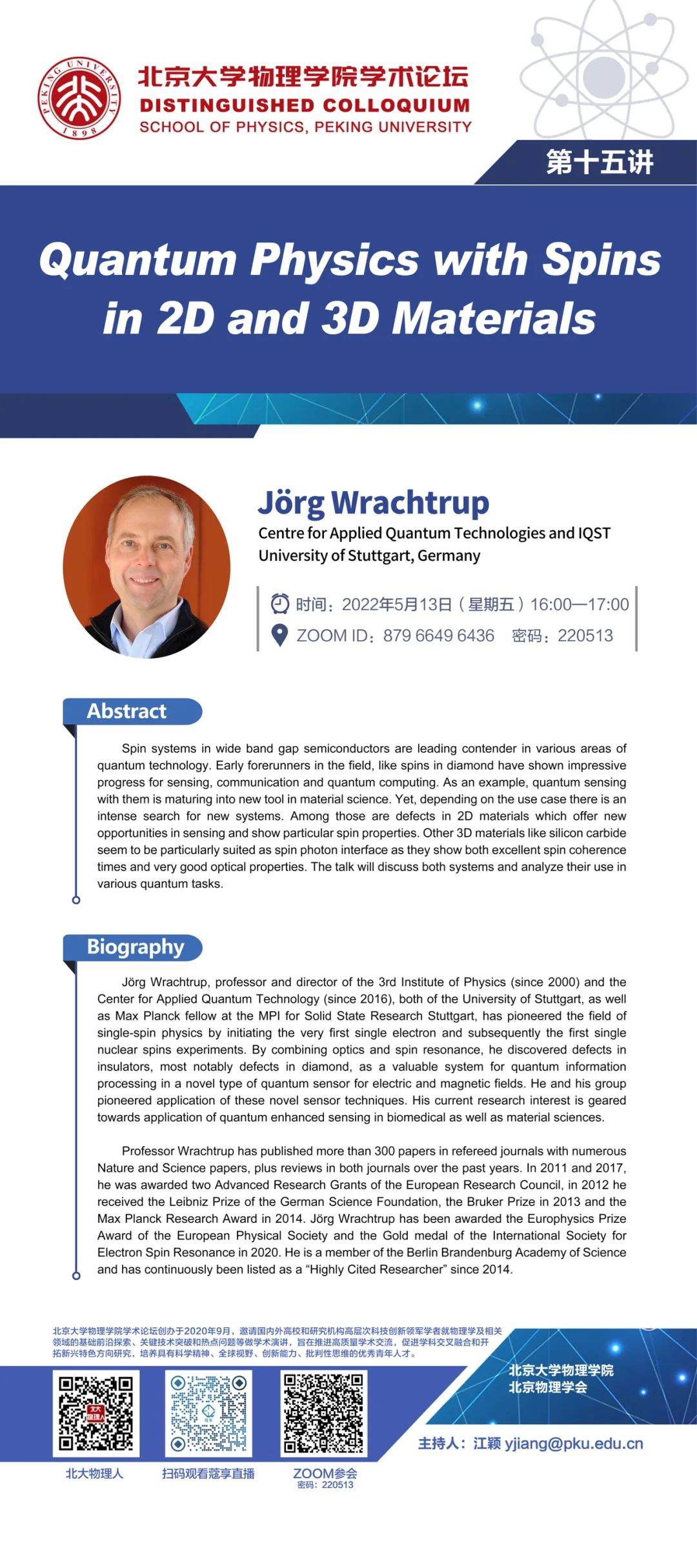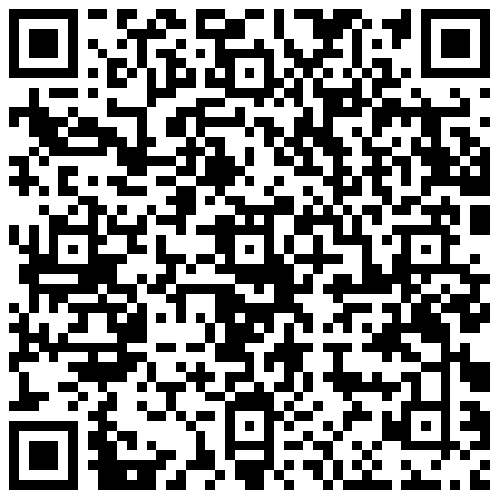[Lecture] Quantum Physics with Spins in 2D and 3D Materials
May. 13, 2022
Speaker: Jörg Wrachtrup, professor, Centre for Applied Quantum Technologies and IQST, University of Stuttgart
Time: 16:00-17:00 p.m., May 13, 2022 (GMT+8)
Venue: Zoom Meeting ID: 879 6649 6436 Password: 220513
Abstract:
Spin systems in wide band gap semiconductors are leading contender in various areas of quantum technology. Early forerunners in the field, like spins in diamond have shown impressive progress for sensing, communication and quantum computing. As an example, quantum sensing with them is maturing into new tool in material science. Yet, depending on the use case there is an intense search for new systems. Among those are defects in 2D materials which offer new opportunities in sensing and show particular spin properties. Other 3D materials like silicon carbide seem to be particularly suited as spin photon interface as they show both excellent spin coherence times and very good optical properties. The talk will discuss both systems and analyze their use in various quantum tasks.
Biography:
Jörg Wrachtrup, professor and director of the 3rd Institute of Physics (since 2000) and the Center for Applied Quantum Technology (since 2016), both of the University of Stuttgart, as well as Max Planck fellow at the MPI for Solid State Research Stuttgart, has pioneered the field of single-spin physics by initiating the very first single electron and subsequently the first single nuclear spins experiments. By combining optics and spin resonance, he discovered defects in insulators, most notably defects in diamond, as a valuable system for quantum information processing in a novel type of quantum sensor for electric and magnetic fields. He and his group pioneered application of these novel sensor techniques. His current research interest is geared towards application of quantum enhanced sensing in biomedical as well as material sciences.
Professor Wrachtrup has published more than 300 papers in refereed journals with numerous Nature and Science papers, plus reviews in both journals over the past years. In 2011 and 2017, he was awarded two Advanced Research Grants of the European Research Council, in 2012 he received the Leibniz Prize of the German Science Foundation, the Bruker Prize in 2013 and the Max Planck Research Award in 2014. Jörg Wrachtrup has been awarded the Europhysics Prize Award of the European Physical Society and the Gold medal of the International Society for Electron Spin Resonance in 2020. He is a member of the Berlin Brandenburg Academy of Science and has continuously been listed as a “Highly Cited Researcher” since 2014.
Source: School of Physic

